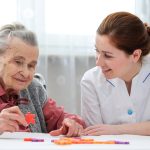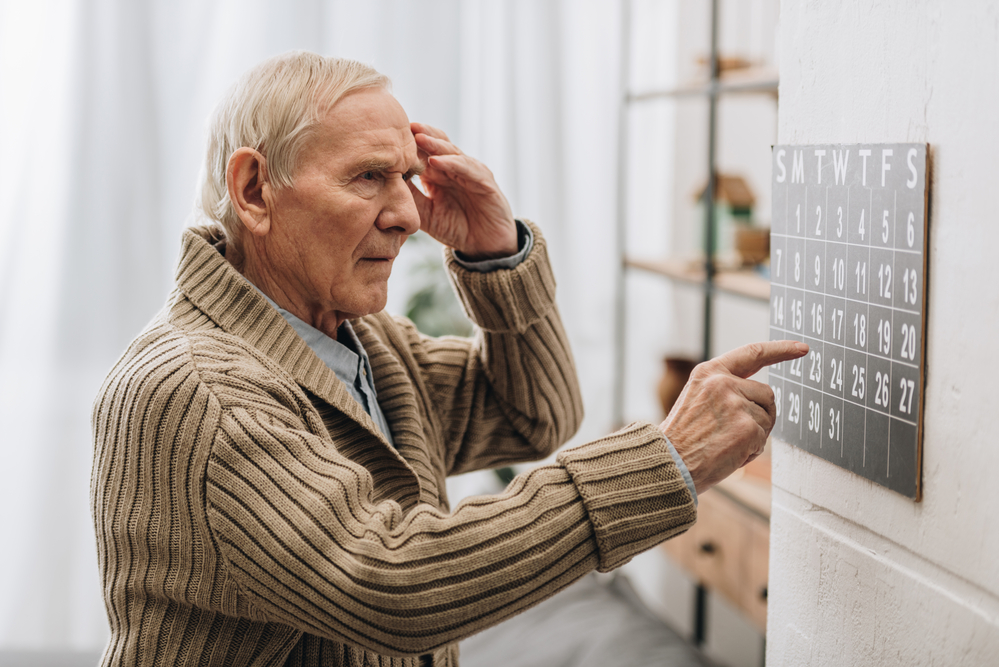
The Five Most Common Types of Dementia
October 5, 2023The Vital Role of a Speech Therapist in Treating Communication and Swallowing Disorders
November 6, 2023A stroke can be a life-changing event, impacting physical abilities and cognitive functioning. Cognitive deficits resulting from a stroke can affect memory, attention, language, and problem-solving skills, significantly altering a person’s daily life. However, with the advent of cognitive rehabilitation, stroke survivors have newfound hope for regaining mental functioning and achieving a better quality of life.
In this blog, we will explore the concept of cognitive rehabilitation and how it can help stroke survivors restore their mental abilities.
Understanding Cognitive Rehabilitation
Cognitive rehabilitation is a specialized form of therapy designed to address and improve cognitive deficits caused by brain injuries, such as strokes. It involves a combination of personalized exercises, strategies, and therapies aimed at retraining the brain to regain lost or impaired cognitive functions. While the brain’s ability to recover varies from person to person, cognitive rehabilitation can lead to significant improvements in cognitive skills, memory, and problem-solving abilities.
Benefits of Cognitive Rehabilitation for Stroke Survivors
1. Memory Improvement:
One of the most common challenges faced by stroke survivors is memory impairment. Cognitive rehabilitation techniques can help individuals strengthen their memory recall and retention abilities, aiding in day-to-day activities and promoting independence.
2. Attention and Focus:
Stroke survivors may experience difficulties in sustaining attention and concentrating on tasks. Cognitive rehabilitation programs target attentional skills, enhancing the ability to focus on specific activities and reduce distractibility.
3. Language Recovery:
Aphasia, a language disorder often seen after a stroke, can hinder communication and social interactions. Through speech and language therapies, cognitive rehabilitation can help stroke survivors regain language abilities, improving their ability to communicate effectively.
4. Problem-Solving Skills:
Cognitive rehabilitation focuses on enhancing cognitive flexibility and problem-solving abilities. This can be crucial in helping stroke survivors adapt to new situations, make decisions, and handle complex tasks more efficiently.
5. Emotional and Psychological Well-being:
Coping with cognitive deficits can lead to frustration, anxiety, and depression in stroke survivors. Cognitive rehabilitation programs often incorporate psychological support, promoting emotional well-being and increasing overall confidence and self-esteem.
The Role of Neuroplasticity in Cognitive Rehabilitation
Neuroplasticity, the brain’s ability to reorganize and form new neural connections, plays a fundamental role in cognitive rehabilitation. When a specific area of the brain is damaged due to a stroke, other regions can take over some of its functions. Through targeted cognitive exercises, rehabilitation stimulates neural plasticity, encouraging the brain to form new pathways and regain lost cognitive abilities.
The Importance of Early Intervention
Early intervention is crucial for successful cognitive rehabilitation. The brain’s plasticity is higher in the initial months after a stroke, making it the ideal time to begin rehabilitation efforts. Starting cognitive rehabilitation as soon as possible can significantly increase the chances of regaining mental functioning and achieving better outcomes in the long term.
A Holistic Approach to Cognitive Rehabilitation
Cognitive rehabilitation should be tailored to each individual’s unique needs and challenges. A multidisciplinary approach involving speech therapists, occupational therapists, neuropsychologists, and physiotherapists ensures a comprehensive rehabilitation program. Additionally, family and caregiver support are invaluable in encouraging and sustaining the progress made during the rehabilitation journey.
Final Thoughts
Cognitive rehabilitation allows stroke survivors to restore mental functioning and improve their overall quality of life. By harnessing the power of neuroplasticity and implementing a holistic approach, individuals can regain lost cognitive abilities and successfully reintegrate into daily activities. As research and technology continue to advance, cognitive rehabilitation holds the promise of continually evolving and providing even more effective strategies to aid stroke survivors in their journey to recovery.
Time is of the essence in stroke rehabilitation. We encourage stroke survivors to seek cognitive rehabilitation at the earliest opportunity, as early intervention can significantly improve outcomes and increase the chances of restoring mental functioning. If you or your loved one is seeking support after a stroke, contact Maplewood Sauk Prairie Health and Rehabilitation Center to schedule a consultation.
References:


